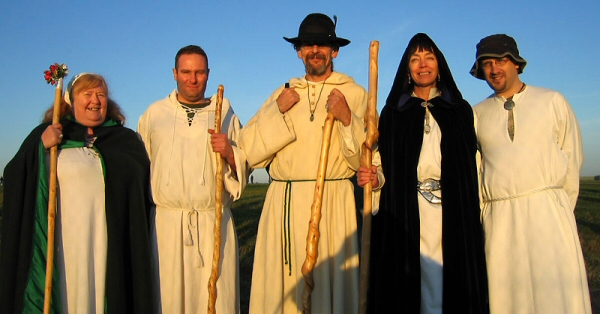
In Celtic polytheism the word druid denotes the priestly class in ancient Celtic societies, which existed through much of Western Europe north of the Alps and in the British Isles. Druidic practices were part of the culture of all the tribal peoples called "Keltoi" by Greeks and "Celtae" by Romans, which evolved into modern English "Celtic". The Druids can almost be defined as the "superclass" who led the Celts. They combined the duties of priest, arbitrator, healer, scholar, and magistrate. The Druids' influence was as much social as religious. They not only performed roles similar to modern priests, but were often the philosophers, scientists, lore-masters, teachers, judges and counsellors to the kings. The Druids linked the Celtic peoples with their numerous gods, the lunar calendar and the sacred natural order.
In the 18th century, England and Wales experienced a revival of interest in the Druids. The poet William Blake was involved in the revival and may have been an Archdruid. Modern Druidism has two strands, the cultural and the religious. Cultural Druids hold a competition of poetry, literature and music known as the Eisteddfod amongst the Celtic peoples (Welsh, Irish, Cornish, Breton, etc). It is not always easy to distinguish between the two strands, because religiously-oriented Druid orders may welcome members of any or no religious background while culturally-oriented orders may not inquire about the religious beliefs of members. Both types of Druid order, then, may contain both religiously-oriented and non-religiously oriented members. Many notable Britons have been initiated into Druidic orders, including Winston Churchill.
A group of neo-druids in the early morning glow of the sun, shortly after having welcomed the sunrise at Stonehenge on the morning of the summer solstice

credits:
1. The text was extracted from Wikipedia The Free Encyclopedia under GNU Free Documentation Licence.
2. Photo: A group of neo-druids © Andrew Dunn 2005